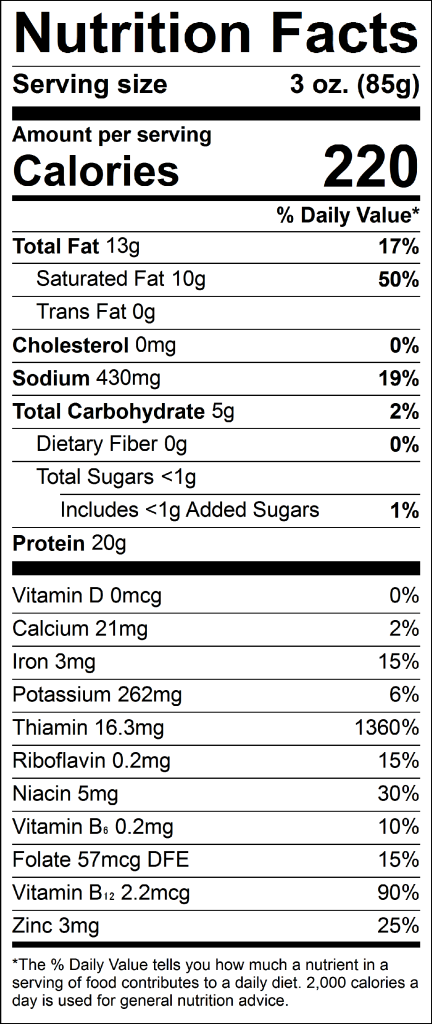Your New Year’s Resolutions Can Improve the Health of the Environment

- Feed production and processing
- Land use change
- Enteric fermentation from ruminants
- Manure storage and processing represent
- Processing and transportation of animal products
Normally, these resolutions require a sacrifice, which is why most of them don’t live to see February 1. In this case, however, advancements in plant-based meats mean that those wishing to go in this direction don’t need to give up anything; products like the Impossible Burger are virtually indistinguishable from beef.
Those who give up fish as well will need to find new sources of vitamin B12, which is available in nutritional yeast, fortified breakfast cereals, and, of course, supplements.
As I like to say, it’s good for the planet, it’s good for your health (see below), and it’s certainly good for the cow.


Craig,
Impossible Burger has declined to submit it’s products for analysis and approval by the PDA.
The FDA didn’t approve the key ingredient of the Impossible Burger, under the present rules in the US, approval doesn’t need to be sought.
The List of ingredients you so proudly publish is incomplete, you carefully leave out a list of all the nasty chemicals, genetically engineered, and downright dangerous ingredients that are in an “Impossible Burger”.
Why not publish the full list of ingredients ? (I’ve posted it several times)
Nor can Vitamin B 12 be sourced from eating yeast, or yeast supplements. The human metabolic system doesn’t work that way.
If you want to be a Vegetarian or a Vegan, that’s your choice and right as an adult to pursue whatever diet you feel is best for you as an individual.
What i object to, is you ‘evangelizing’ your particular fancy with misinformation, inaccurate moralizing about environmental concerns, and distortions of the truth.
What’s even more annoying, is you demonize with false propaganda millions of hard working farmers who for generations have been producing increasingly nutritious food for an increasingly, healthy, well fed and prosperous world population.
Any product that must hide the nature of it’s true ingredients behind lies and deliberate omissions, needs to be treated with care and circumspection.
Any advocate who disseminates such propaganda, and refuses to even discuss the extensive list of harmful ingredients and inaccuracies in environmental disinformation, also has something to hide.
As I say, if you like to eat a synthetic, artificial, genetically engineered meat substitute, go ahead and enjoy, it your right to choose ! But, when it come to advocating adoption by others, you have an obligation to tell the truth, the whole truth, not leave out the unfavorable aspects.
Here’s the FDA approval: http://fortune.com/2018/07/24/impossible-foods-burger-fda-approval/
Craig,
Thank you for your reply.
Impossible burger don’t have FDA “approval” as such, what they have obtained is a GRAS status for only one ingredient.
In issuing a ‘no-questions letter’, the FDA noted “genetically engineered soy leghemoglobin would be considered a “color additive and generally regarded as safe for human consumption on current information available”.
Of course, all the other chemicals and processed ingredients haven’t been submitted to the FDA, nor the effect of changes in chemical formula or how the various chemically produced ingredients combine with each other to effect the human metabolism.
Ah, but So much better than eating the natural food humans have been consuming for at least 100,000 years!
Take the ingredient coyly labelled by “impossible burger” as ‘konjac gum’.
The FDA lists the dangers for consumption of Konjac gum (or Glucomannan) as ranging from mild bloating, flatulence, soft stools or diarrhea, to a severe allergic reaction involving bowel or throat obstruction. Konjac can also reduce the absorption of oral medications, sulfonylurea, a diabetes drug is a typical example.
Processed versions of this product have been banned in the European Union following extensive studies.
Or how about good old Xanthan Gum, eh? Xanthan gum is a sugar derived typically from corn that has been pooped out by a bacteria that produces rot on various vegetable. Possibly for this reason, and especially in it’s highly concentrated form once chemically processed,
Exposure to Xanthan gum is known to cause a wide range of maladies such as intestinal gas and bloating, flu-like symptoms, nose and throat irritation, and lung problems.
Those with an allergy, may experience severe and permanent lung damage.
Oh well, never mind, what about MSG (yum), or any one of a large number of chemically produced, genetically engineered, synthetic ingredients?
Last, but not least, never mind all that extra processed saturated fat and sodium.
Enjoy !